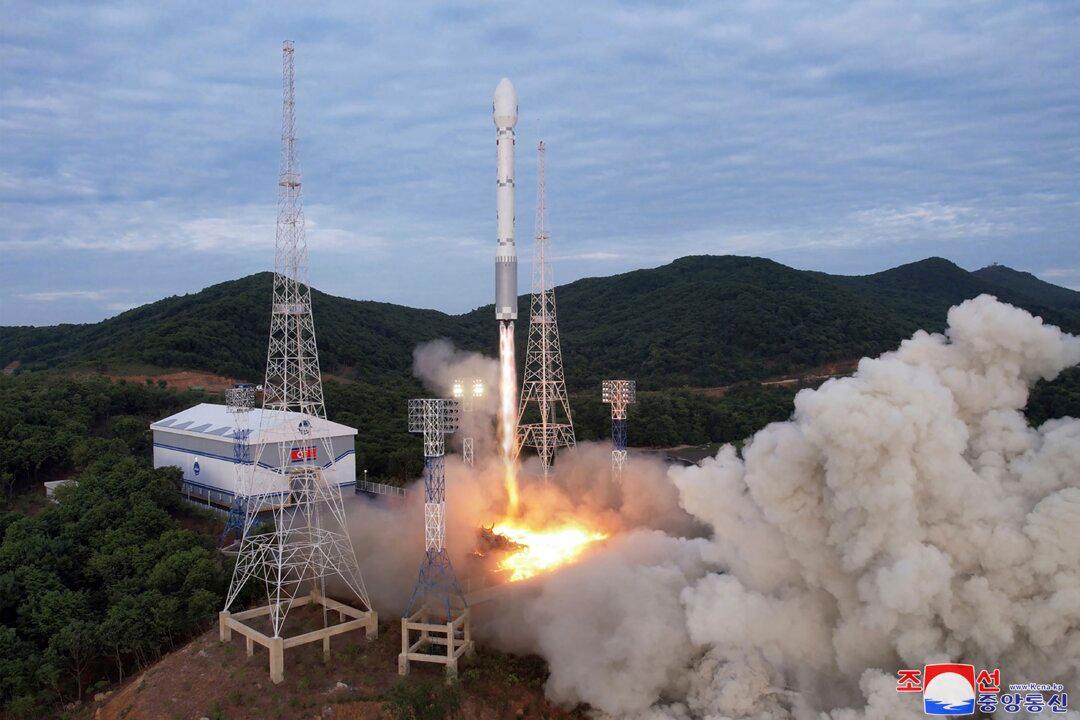North Korea has notified Japan of its intention to launch a satellite between Aug. 24 and Aug. 31, which could affect three “danger areas,” including the East Philippines, according to the Japan Coast Guard.
The Japan Coast Guard received a notification from North Korea on Aug. 22, saying it aimed to designate three maritime areas—off the Korean Peninsula’s west coast, in the East China Sea, and east of the Philippine island of Luzon—as danger zones, Kyodo News reported.





